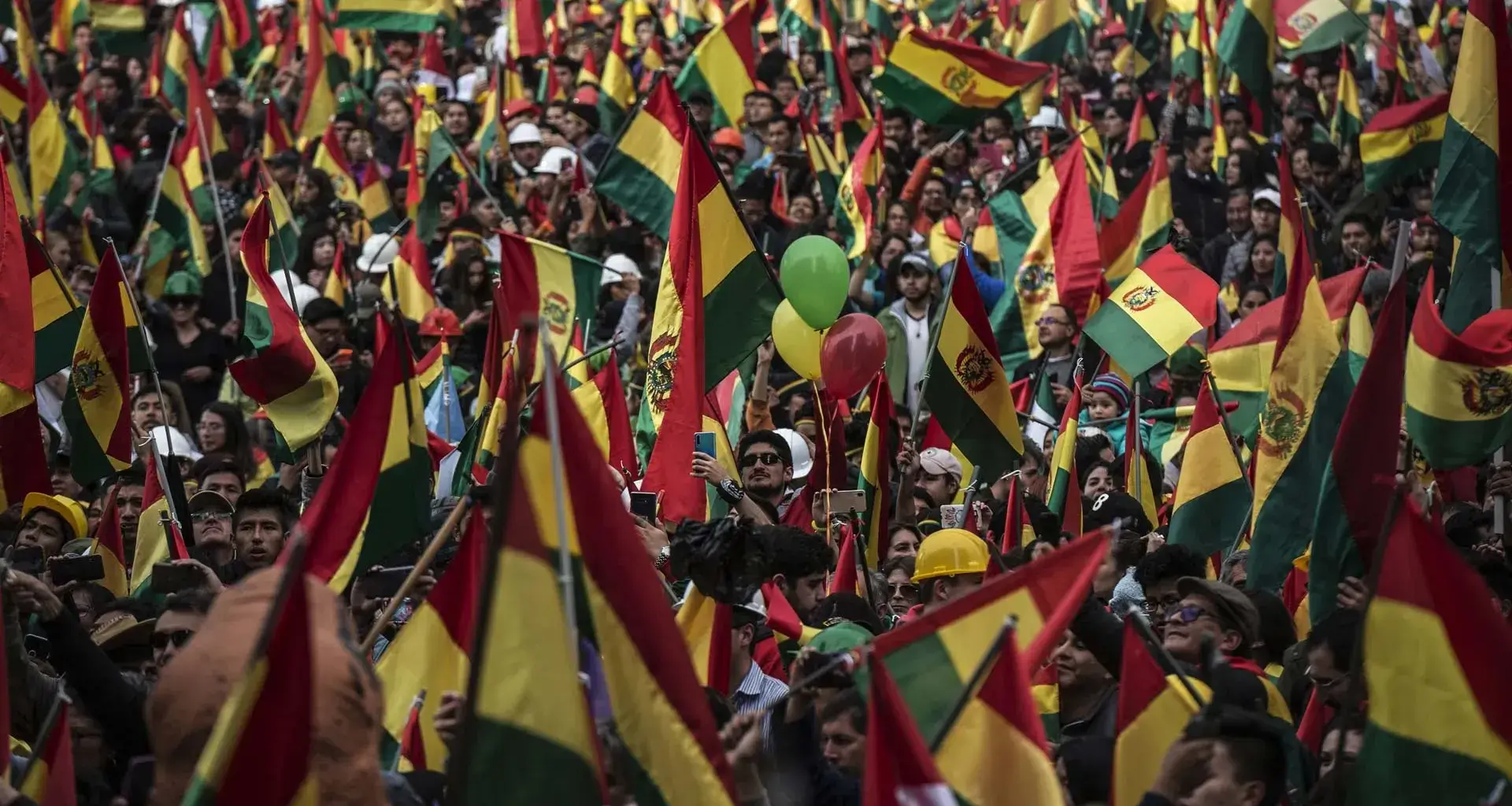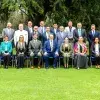In the wake of the presidential elections of October 20, Bolivia was inundated with protests that led to the resignation of President Evo Morales on November 10.
THE ELECTION
- Evo Morales was seeking reelection for his fourth term in office. Despite this eventuality appearing unlikely based on the results of the 2016 referendum, he still hoped that Bolivian justice would prevail.
- On election night, a second vote against rival Carlos Mesa seemed to be on the cards, but after a system crash, Evo proclaimed himself to be the winner the next day.

PROTESTS
- Suspicions of fraud triggered protests in the streets and clashes between pro-government sympathizers and the opposition.
- Days later, citizen organizations called for a countrywide general strike. Candidate Luis Fernando Camacho stood in opposition to Morales.
- When Morales was officially declared the winner, several countries and international organizations called for a second round of voting.
THE RESIGNATION
- The protest spread throughout the country until Morales called a new election on November 10.
- Later, on that same day, Morales handed in his resignation at the suggestion of the armed forces and inner circle, thereby leaving a power vacuum in the country.
- The Mexican government granted Evo Morales political asylum on November 11. News was also released that 20 government officers and legislators have taken refuge in the Mexican embassy in Bolivia.
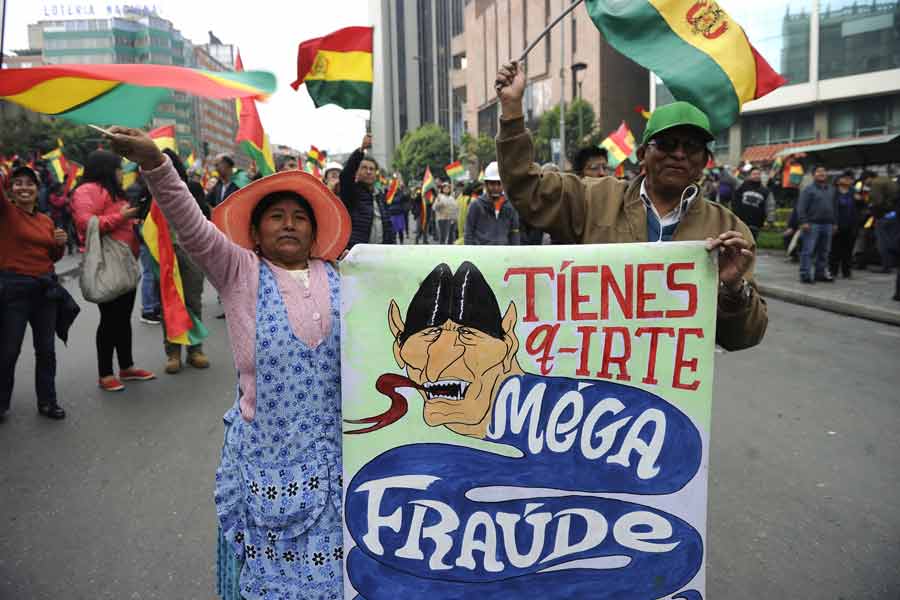
COUP D’ÉTAT?
Iliana Rodríguez Santibáñez, associate director of Tec de Monterrey’s Regional Legal Department, gives her opinion about what is happening in this South American country.
“When any government group seizes executive power without first exhausting all relevant constitutional processes, we’ll be talking about a coup d’état.”
She noted that the situation in Bolivia is singularly atypical.
“Firstly, the one resigning is the Bolivian leader (Evo Morales), who did so in a constitutionally correct manner.”
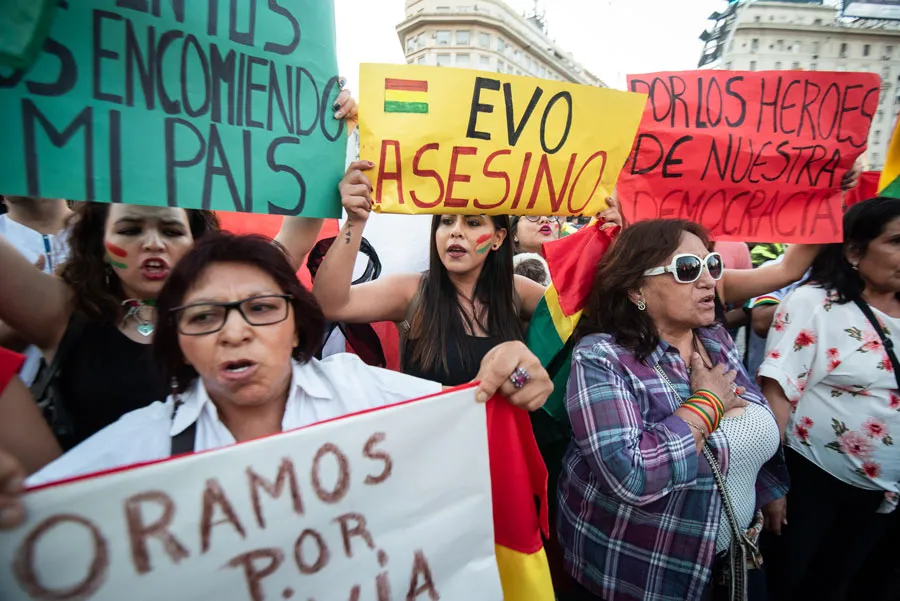
She emphasized that it could be called a coup d’état if coercion on the part of the army could be proven.
“Coercion could be presumed if we consider the number of public officials who ran to the embassies seeking asylum, particularly the Mexican embassy.”
“The fire at the leader’s home, the resignation of the vice president, the leader of the senate, the chamber of deputies, and subsequent mass resignations evidently point to coercion”.
She noted that this coercion came from the armed and police forces, who were the first to call for the leader’s resignation.
“There’s also the posture of the organized civil society, as expressed by Camacho, who was the first to speak out about the need to annul the October 20 elections.”
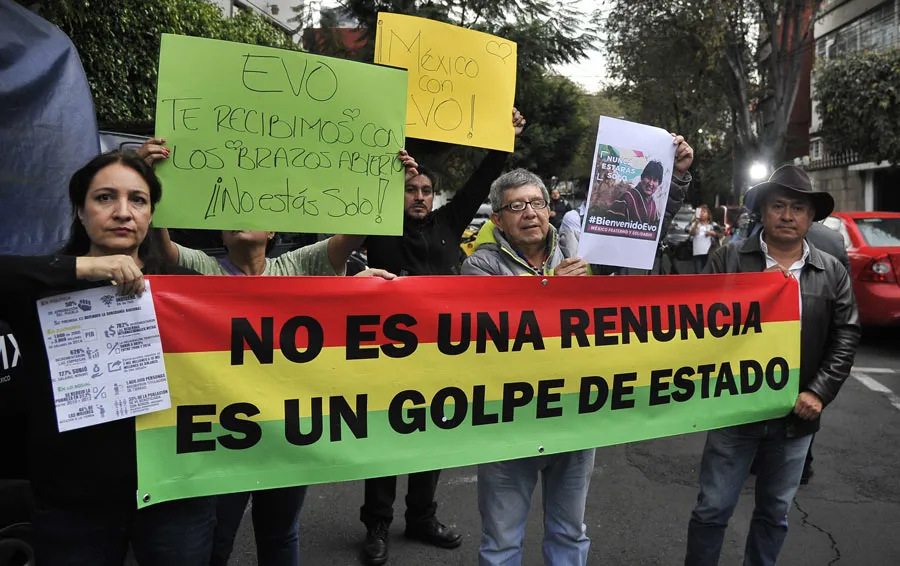
She added that many assume there was a coup d’état because the army first brought up the subject of Morales’s resignation, but she made it clear that it was up to countries to judge for themselves.
“It’s like what happened in 2009 (in Honduras) when Manuel Zelaya was taken to Costa Rica, where he stated that he had been the victim of a coup d’état. The OAS never recognized that there had been a coup d’état.
She does, however, say that although the circumstances seem to point to a coup d’état, while the rule of law is preserved, it is very difficult to reach that conclusion.
This reasoning is even more applicable if the leader handed in his resignation legally and constitutionally.
WHAT WILL HAPPEN IN BOLIVIA?
The academic said that opposition senator Jeanine Añez would hold executive power in Bolivia during the transition period.
“So, the constitution requires that Jeanine Añez should assume the presidency of Bolivia. She is the second vice-president of the senate and an opponent of Morales.
She would formally assume this responsibility as dictated by the order of succession with the task of calling new elections within a time frame of three months.”
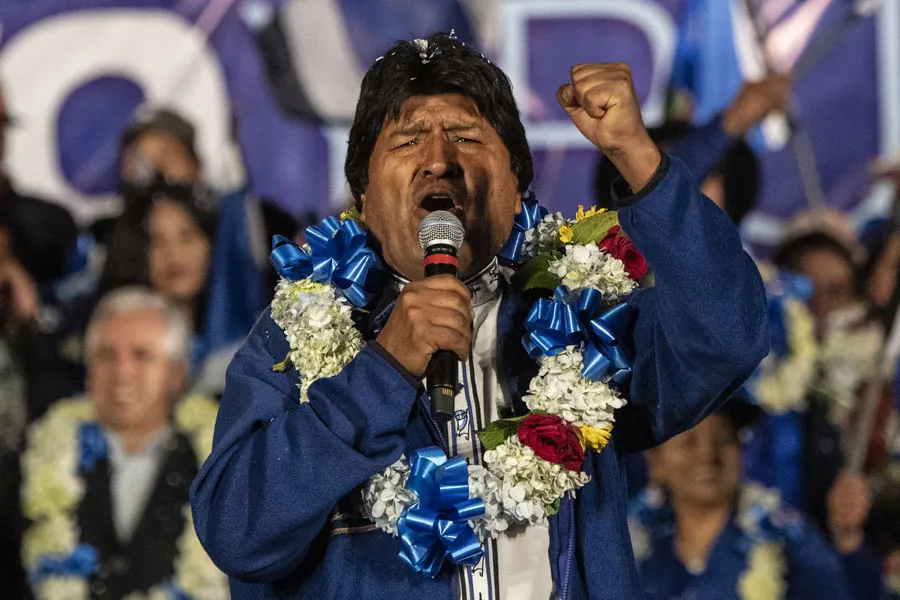
WHAT DOES THE IMMEDIATE FUTURE HOLD?
“What we are going to see is the immediate promotion of (Luis Fernando) Camacho, who brought about Evo’s downfall. He is sure to appear as one of the candidates.”
She was of the opinion that Carlos Mesa, who had been pushed into the background, has fewer possibilities than Camacho, and although his candidature is very probable, she expects him to stand down in a new election.
“Because he was president once before, in 2003. It looks unethical to me because the public is set against reelection. It would be neither healthy nor positive for Carlos Meza to stand for office in this election.”
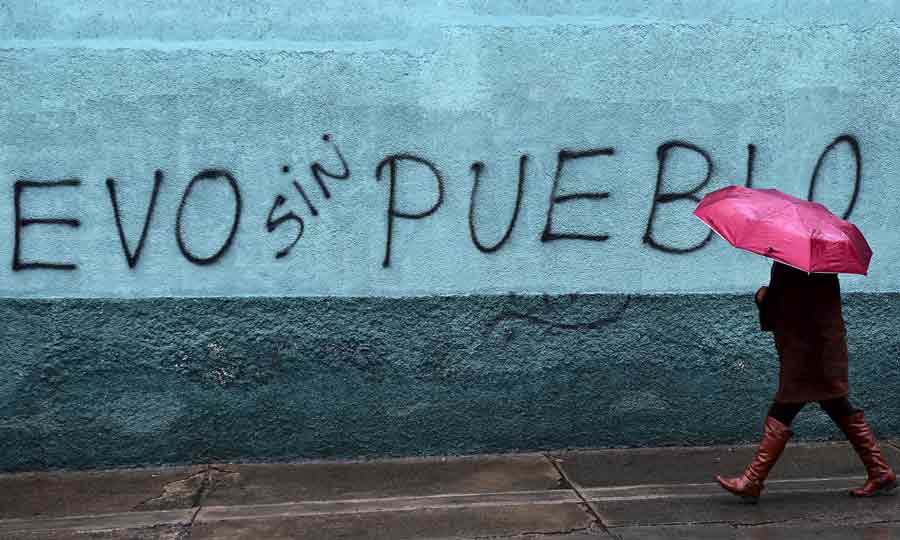
Our expert therefore expects to see new candidates emerge in these elections.
“With three months to prepare for the elections, it will be complicated, but it will be interesting to see the maturity of the Bolivian people, their organizational capacity, and how their demands are met.”
In conclusion, she said that it would be important to keep a close watch on the breach caused by the police in this situation.
“These overlooked police groups were an important variable in the generation of what we are seeing in Bolivia,” she concluded.
PHOTOS: AFP
YOU’LL SURELY WANT TO READ THIS TOO:

